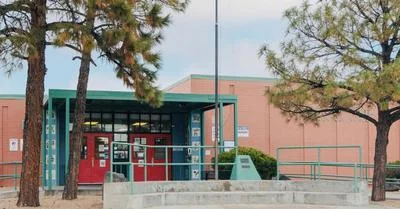Sandia National Laboratories, known for its commitment to innovation and technology development, has been recognized for its outstanding work in technology transfer. The Federal Laboratory Consortium has awarded Sandia with several prestigious honors, highlighting the laboratory's success in bringing cutting-edge technologies to the marketplace.
One of the standout achievements is the development of Disinfectant 2.0, a product that kills viruses, bacteria, and fungi for long periods. This groundbreaking solution was created by materials scientist Hongyou Fan and his team, in collaboration with Lunano, LLC, a company based in McLean, Virginia. The partnership between Sandia and Lunano was initially formed as part of the FedTech Startup Studio program to explore the application of nanomaterial technology for disinfectant purposes. However, when the COVID-19 pandemic struck, the collaboration intensified, driven by the realization of the urgent need for an effective disinfectant.
Bradley Duckworth, the CEO and co-founder of Lunano, recalled a conversation with a Lyft driver that inspired the team to push forward with their project. Duckworth asked the driver if he would be interested in a disinfectant product that is effective, odorless, and long-lasting. The driver's enthusiastic response confirmed the demand for such a solution in various industries, including transportation, hospitality, and healthcare.
The team at Sandia and Lunano leveraged their expertise to develop a process called detergent-assisted fabrication of porphyrin nanoparticle photosensitizers. These nanomaterials, when exposed to light, trigger a chemical reaction that eliminates disease-causing microorganisms. Unlike traditional disinfectants, Disinfectant 2.0 has a months-long to a years-long lifespan, making it highly effective and cost-efficient for continuous use.
However, creating the product was only the first step. The team faced the challenge of commercialization, which required licensing the technology quickly and efficiently. Despite the obstacles posed by the COVID-19 pandemic, the team persevered, conducting online meetings and interviews, securing a patent attorney, and finding angel investors. Through a special license created during the pandemic, Lunano was able to license the technology from Sandia at no cost.
With the technology now licensed, Lunano is conducting research with major companies to integrate Disinfectant 2.0 into their products and scale up production. The company aims to create 100 jobs in the process, highlighting the potential economic impact of this innovative technology.
Sandia's commitment to technology transfer goes beyond Disinfectant 2.0. Samantha Updegraff, Sandia's Chief Intellectual Property/Patent Counsel, has been recognized as the Outstanding Tech Transfer Professional of the Year by the Federal Laboratory Consortium. Updegraff's non-traditional background in chemical engineering and patent law has allowed her to devise creative strategies for successfully accomplishing Sandia's tech transfer mission. She has played a crucial role in updating licensing and tech transfer agreement templates, streamlining the process and making it more efficient. Updegraff has also facilitated partnerships with other national laboratories and industry players, further expanding the reach of Sandia's technologies.
The TRGR Technology Readiness Initiative, another success story in technology transfer, has received the State and Local Economic Development Award from the Federal Laboratory Consortium. This program, launched in 2020, provides New Mexico businesses that have licensed technology from Sandia and Los Alamos National Laboratory with up to $150,000 in technology maturation assistance. This support has enabled companies like Kairos Power, a nuclear energy engineering and manufacturing company, to access specialized equipment and expertise to develop their technologies. As a result of the TRGR program, 15 licenses and three Cooperative Research and Development Agreements have been secured, benefiting both the businesses and the state of New Mexico.
Sandia National Laboratories' recognition by the Federal Laboratory Consortium showcases its commitment to innovation and technology transfer. The success of projects like Disinfectant 2.0 and the TRGR Technology Readiness Initiative demonstrates Sandia's ability to bring cutting-edge technologies to the market, benefiting industries and communities. With their ongoing dedication to technology transfer, Sandia continues to make a significant impact on the world.









